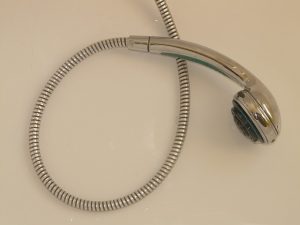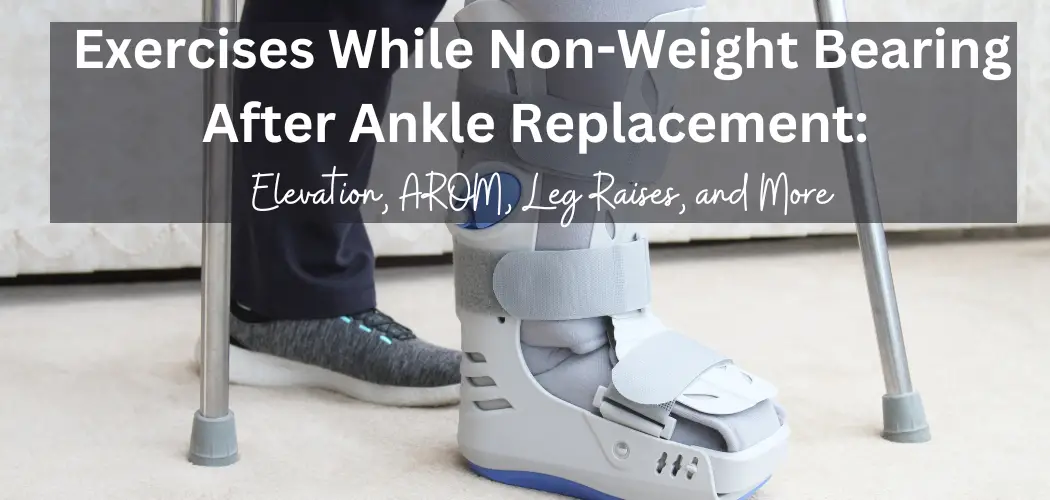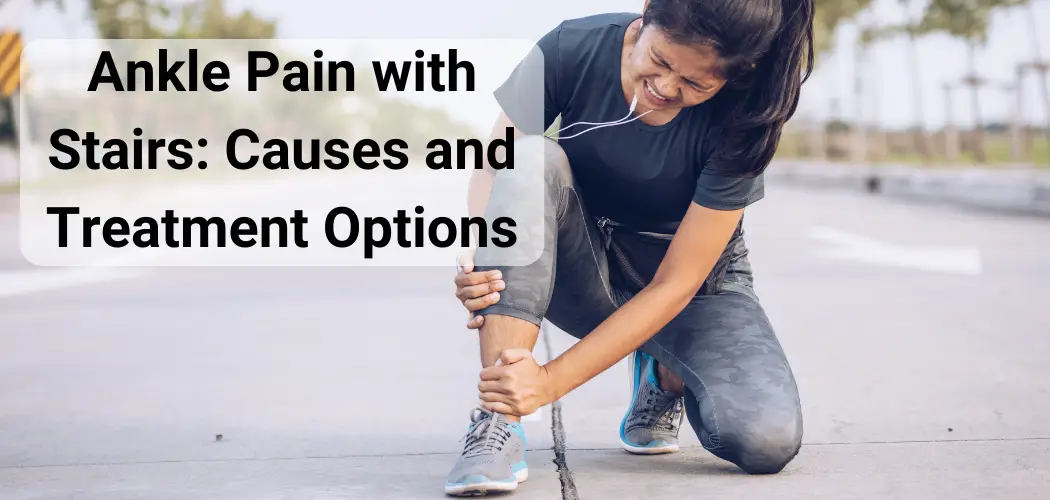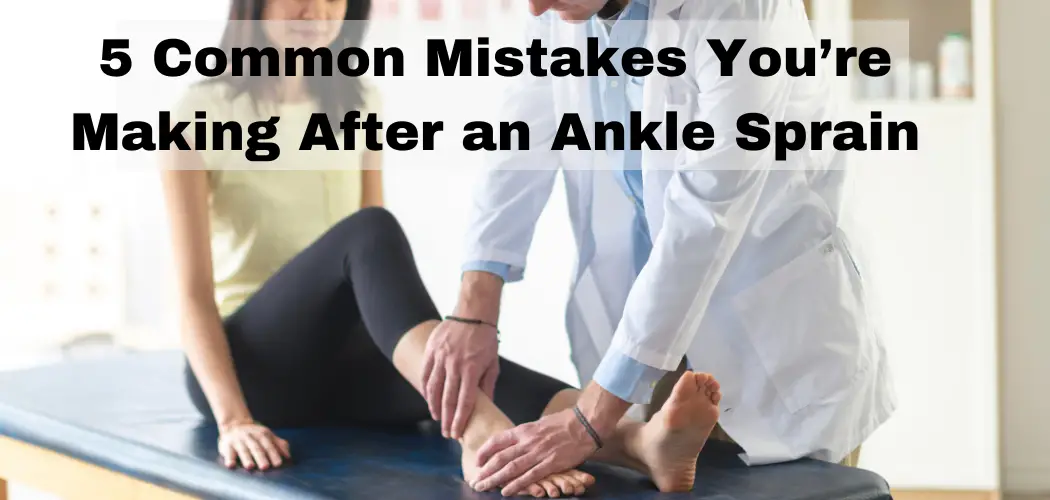Preparing for any type of surgery is nerve-wracking. In addition to the pain you’re dealing with,you have the added stress of making doctor appointments, arranging post-operative therapy and home care, and gathering the necessary supplies you need for recovery.
Nothing helps calm pre-surgery jitters like feeling prepared. Here’s a quick guide to everything you need to do to get ready for your total shoulder replacement.
What to Expect With a Total Shoulder Replacement
 Keep in mind that your overall health before having surgery plays a big role in how well and how quickly you heal.
Keep in mind that your overall health before having surgery plays a big role in how well and how quickly you heal.
If you’re an active person who eats well and doesn’t smoke, you’re more likely to heal faster than someone who lives the opposite lifestyle. Any positive changes you can make before surgery will help you in the long run.
Here’s what to expect:
- In most cases, a total shoulder replacement will take around three hours.
- The day after your surgery, you will begin light physical therapy exercises, like moving your fingers and making a fist.
- You won’t be able to drive for around 4 – 6 weeks
- You will be required to do daily physical therapy exercises as well as go to physical therapy appointments weekly or bi-weekly depending upon your progress.
- You will be limited on how you can move and what you can lift. The length of time varies from patient to patient.
Proper Preparations Help Prevent Post-Op Problems
 We all know the old Boy Scout adage “Always be Prepared”. That saying holds up when discussing a total shoulder replacement. The more you can get done before your surgery, the better off you and those caring for you will be in the long run.
We all know the old Boy Scout adage “Always be Prepared”. That saying holds up when discussing a total shoulder replacement. The more you can get done before your surgery, the better off you and those caring for you will be in the long run.
Having a total shoulder replacement can hinder your daily activities and make even the simplest of tasks seem like climbing Mt. Everest.
The following suggestions are meant to get you prepared so that you can relax and heal in a comfortable setting.
Medication List
 Be sure your doctor and surgeon know what medications you are currently taking, even OTC medications and homeopathic remedies. They must know this information so they can avoid any adverse drug reactions while you are under anesthesia. Your doctor may have you discontinue certain medications before surgery.
Be sure your doctor and surgeon know what medications you are currently taking, even OTC medications and homeopathic remedies. They must know this information so they can avoid any adverse drug reactions while you are under anesthesia. Your doctor may have you discontinue certain medications before surgery.
Quit Smoking!
 If you are a smoker, this is easier said than done; however, it is essential to the healing process that you quit smoking before surgery and at least until you have fully healed.
If you are a smoker, this is easier said than done; however, it is essential to the healing process that you quit smoking before surgery and at least until you have fully healed.
Smoking reduces oxygen and blood flow, which in return reduces your ability to heal.
Use Extra Caution if You are Diabetic
If you have diabetes, you may need special authorization for surgery depending upon how severe your condition is. Diabetes can slow down the healing process and it’s best to let all of your medical professionals know.
Avoid Getting Sick Before Surgery
It is essential to notify your surgeon if you become sick before surgery. If your immune system is not up to snuff, they may want to postpone your surgery until you are stronger or may need to give you some antibiotics to prevent infections.
There is no surgeon in the world that will do surgery on someone who is sick and risk getting an infection in the joint.
Don’t Lie to Your Doctor
Everyone lies to their doctor about how much they smoke or drink, it’s human nature. Although your instinct may be to lie or not tell the whole truth, it is essential to notify your surgeon or anesthesiologist when they ask if you have had any alcoholic beverages in the week before your surgery.
You may not realize it, but that can affect your anesthesia, and it is important to be honest with them about it. Even if you only have a glass of wine per day, let them know.
Get Help After Surgery!
Don’t try to do this on your own. After having a total shoulder replacement, you will be extremely sore and will only have use of one arm. You will need as much help as you can get. Enlist more than one person to help you if possible. People can get a break and do things they need to do.
Meal Prep Before Surgery
 Before having surgery try to stock up on meals that are easy to prepare. Perhaps make some meals ahead of time and freeze them in individual portions that can be easily reheated.
Before having surgery try to stock up on meals that are easy to prepare. Perhaps make some meals ahead of time and freeze them in individual portions that can be easily reheated.
Place Important Things Within Reach
Go through your house and consider your daily tasks. What items do you use every day? Place those items in an easy area for you to grab, such as counters and tables.
Once you have surgery, you are not going to feel like reaching for the items you need. Focus on the kitchen, bathroom, and bedroom. Try to put everything within reach so you can be as independent as possible.
Watch Your Step!
 Tripping and falling after you have just had a total shoulder replacement can be devastating to the surgery, not to mention beyond painful.
Tripping and falling after you have just had a total shoulder replacement can be devastating to the surgery, not to mention beyond painful.
Be sure to clear all walkways of any debris that can cause you to trip and fall. Those poufs and rugs are pretty, but they make it harder to move though your space during your recovery.
Move cords, area rugs, and other hazards out of the way, so you have plenty of room to maneuver.
Get the Ice on Standby
 Get your freezer stocked with plenty of soft ice packs or at the very least some frozen peas and corn. You will need the ice, especially before bedtime, if you want to rest comfortably.
Get your freezer stocked with plenty of soft ice packs or at the very least some frozen peas and corn. You will need the ice, especially before bedtime, if you want to rest comfortably.
Shower Prep
 In many cases, patients are not allowed to take a full-blown shower after having a total shoulder replacement surgery.
In many cases, patients are not allowed to take a full-blown shower after having a total shoulder replacement surgery.
One thing that will help tremendously is to have a showerhead with a hose and a bench seat so you can sit and shower or have someone help you shower without getting your shoulder wet.
If you can’t make these accommodations for yourself, be sure you have plenty of soft sponges and a washbasin so you can at least take a nice sponge bath until it is safe to shower again.
Stock up on Pillows For Comfort After Surgert
 If possible, invest in a good wedge pillow. Pillows will save your life after surgery. They allow you to prop your arm up to help blood flow and reduce swelling and stiffness. They will also help immobilize you as you sleep, so you don’t accidentally roll over onto your bad shoulder.
If possible, invest in a good wedge pillow. Pillows will save your life after surgery. They allow you to prop your arm up to help blood flow and reduce swelling and stiffness. They will also help immobilize you as you sleep, so you don’t accidentally roll over onto your bad shoulder.
Preparing for Shoulder Replacement Surgery
Preparing Promotes Recovery
As you can see, there is a lot to think about before going under the knife. If you follow these tips and those of your surgeon and physical therapists, you will be on the road to a successful recovery.
Sources:
https://www.youtube.com/watch?v=HlqBxg4GQ8g
https://www.youtube.com/watch?v=-n60qWBjmSk
https://www.arthritis-health.com/surgery/shoulder-surgery/preparing-shoulder-replacement-surgeries
(https://www.arthritis-health.com/surgery/shoulder-surgery/preparing-shoulder-replacement-surgeries), (https://www.verywellhealth.com/total-shoulder-replacement-5184608),
Other Great Rehab Related Articles
How to Stay Active After Cervical Fractures: Expert Tips and Advice
Dealing with Painful Stairs After Ankle Replacement Surgery
Walking After a Total Ankle Replacement: Tips for a Successful Recovery
Exercises While Non-Weight Bearing After Ankle Replacement: Elevation, AROM, Leg Raises, and More
Ankle Pain with Stairs: Causes and Home Treatment Options
5 Common Mistakes You’re Making After an Ankle Sprain
Disclaimer: The information provided in this post is for educational purposes only. This is not a substitute for a medical appointment. Please refer to your physician before starting any exercise program.







